Khan urges UN action over Kashmir dispute with India
Pakistan's Prime Minister Imran Khan has urged the United Nations to help in the dispute with India, a fellow nuclear power, over the region of Kashmir.
Speaking during a media briefing at the annual meeting of the World Economic Forum in Davos, Switzerland on Wednesday, Khan said "This is a potential flashpoint."
He added that it was time for the "international institutions ... specifically set up to stop this" to "come into action".
New Delhi announced it was revoking the Muslim-majority Himalayan region’s constitutional autonomy on August 5.
Kashmir is generally considered disputed territory. It has been split between India and Pakistan since their partition in 1947. The countries have fought three wars over the territory.
Khan noted that he had held talks with US President Donald Trump on Tuesday, and discussed the prospect of war between his country and India. Trump later said he had offered to help mediate between the two countries.
The Pakistani premier also expressed fear regarding how New Delhi would respond to ongoing protests in India over a new controversial citizenship law that is widely considered anti-Muslim.
"We're not close to a conflict right now ... What if the protests get worse in India, and to distract attention from that, what if ..."
The law, backed by Prime Minister Narendra Modi’s Hindu nationalist Bharatiya Janata Party (BJP), allows granting citizenship to the millions of migrants who legally or illegally came into India from Pakistan, Bangladesh, or Afghanistan before December 2014 — but not if they are Muslims.
Critics say the law will be used in conjunction with a citizenship list that could require all Indians to produce documents proving their origins, a challenge in a country where many people lack official records, including birth certificates.
Muslims fear the new law may be misused to strip them of their citizenship. The ruling BJP, however, argues the law has nothing to do with the country’s Muslims but aims to help those suffering alleged religious persecution in the neighboring countries.
Widespread demonstrations have rocked the Hindu-majority nation since the law was approved by parliament in December.
At least 27 people, mostly Muslims, have been killed in clashes with police, which has been accused of using disproportionate force in several states.
Israel indicts two settlers over suspected spying for Hezbollah
Iran: US airstrikes on Yemen war crimes, violation of international law
Yemeni armed forces down F-18 fighter jet, repel US-UK attack: Spokesman
Iran warns against US-Israeli plot to weaken Muslims, dominate region
VIDEO | Public uproar in US against Israeli regime
‘Ghost town’: 70% of Jabalia buildings destroyed by Israel
Mother’s Day: Sareh Javanmardi’s inspiring journey as Paralympic champion and mother
Russia downs over 40 Ukrainian drones as Putin vows 'destruction' on Kiev


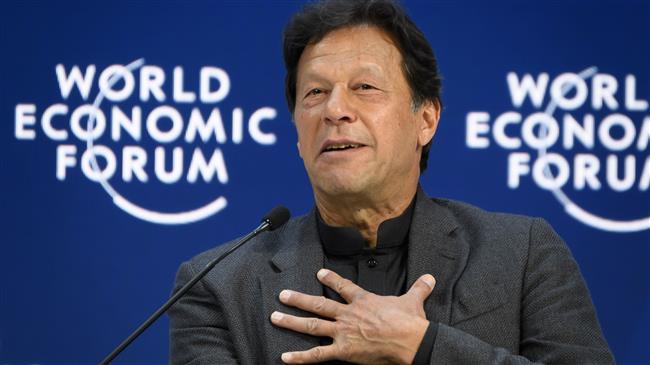

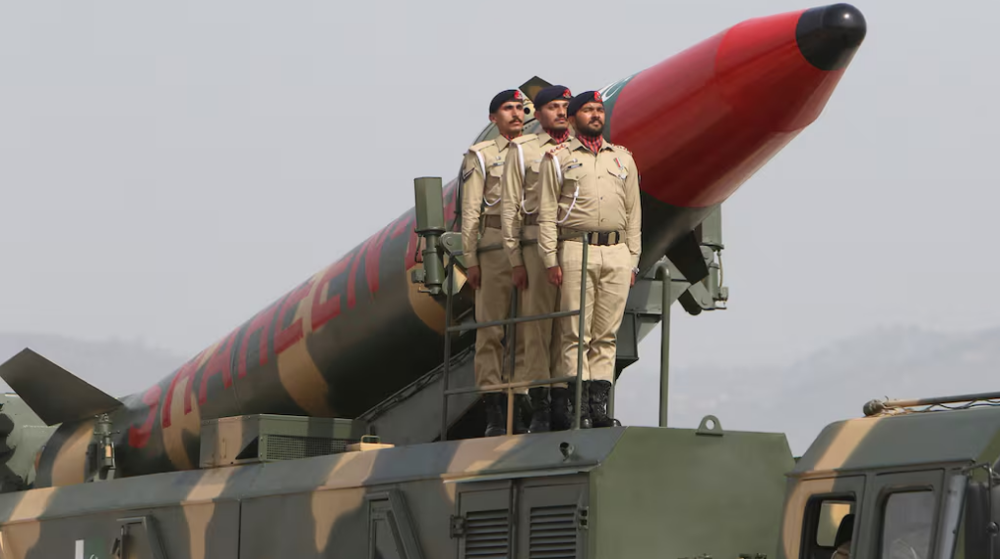

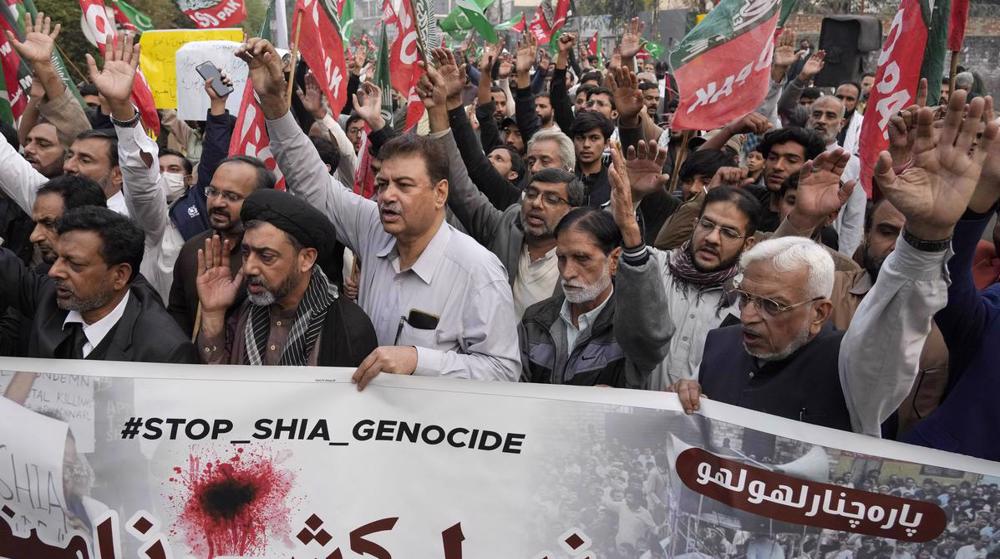



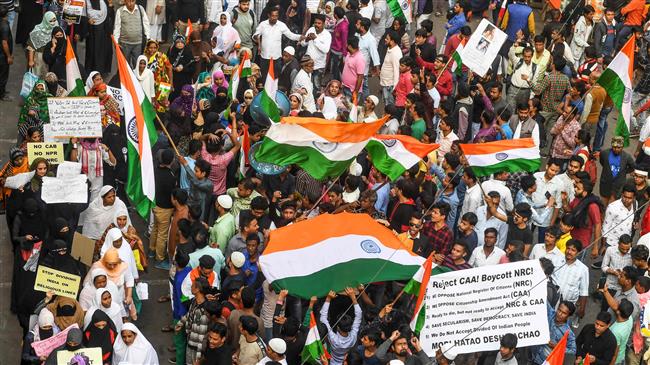
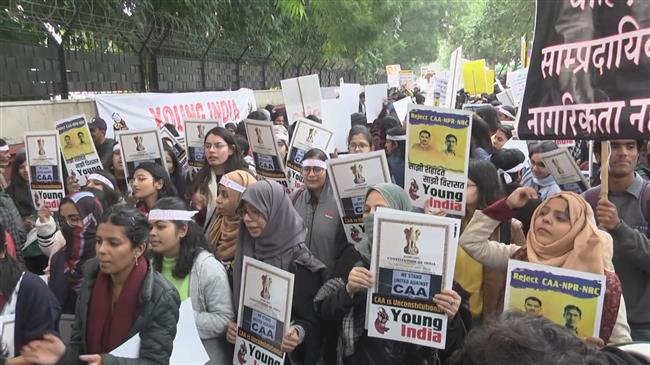
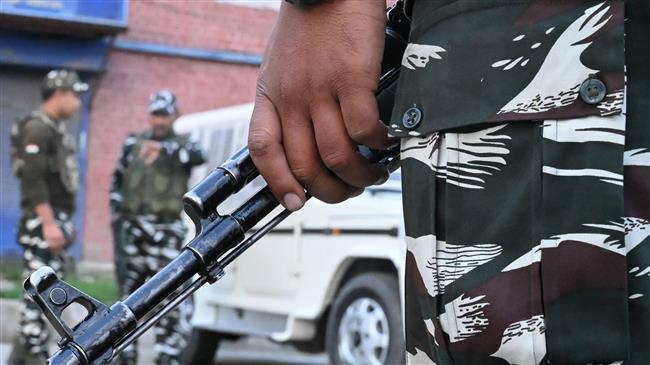
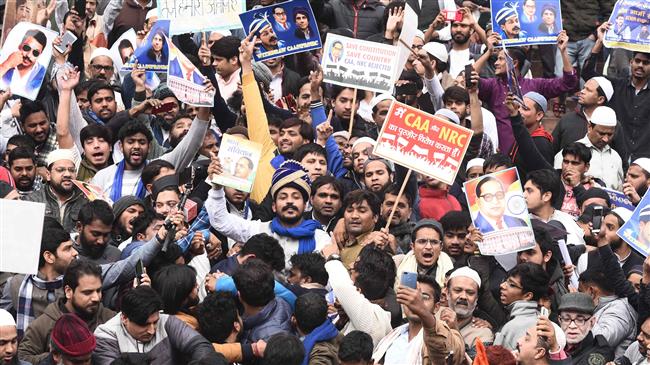

 This makes it easy to access the Press TV website
This makes it easy to access the Press TV website